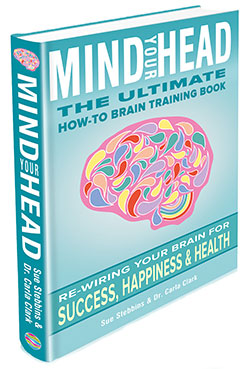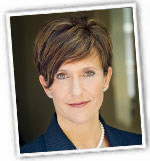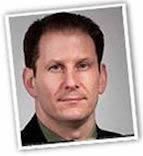Imagery and the Coherence of Imagination: A Critique of White
Nigel J.T. Thomas
Page 1
Source: http://www.imagery-imagination.com/white.htm
1. Introduction.
Imagination has long been a highly charged concept in our culture (Kearney, 1988). McFarland (1985) suggests that the notion has taken over many of the functions once served by 'soul', at once ineffable and supremely valuable, and certainly it is held to be the source of our best thinking, the original and the creative. Brann (1991) argues persuasively that the concept of imagination has played a pivotal (if largely unacknowledged) role in Western philosophical thought throughout most of its history, and more recently (since the rise of the Romantic movement) it has certainly played a key ideological role in the rhetoric of critics of (and mere cavilers at) the secular and scientific world-view which is the dominant mode of modern Western culture (Roszak, 1972; Raine, 1984; Corbin, 1969).
You would never guess at any of this, however, by looking at what analytical philosophers have had to say about imagination. In fact, you might come to doubt whether we even have such a concept. It seems to have become almost standard for philosophers to treat 'imagination' and its cognates as polysemous terms, each a collection of homonyms rather than a single word. Strawson (1971) expresses doubt as to whether even a family resemblance can be found between the various meanings. This view was foreshadowed by certain remarks of Wittgenstein's, and by Ryle's (1949, chap. 8 §4) contention that not all activities that we might call imaginative have to involve any common 'nuclear operation'. The traditional candidate 'nuclear operation' was of course, the experiencing of mental imagery, and Ryle seemed to be casting doubt as to whether such a thing really occurred at all. Although, in my view, he intended merely to cast doubt on the idea that such experiences involved having something like pictures in the head (Thomas, 1989), the more radical reading of his remarks, the thoroughgoing rejection of imagery, has had a continuing influence amongst analytical philosophers.
The polysemy theory of imagination, however, probably has its first clear public expression in a paper by Annis Flew (1953) which identifies three distinct senses of 'imagine': 'have a mental picture'; 'think (perhaps mistakenly)'; and 'suppose'. These, or slight variants of them, together with 'pretend', which Ryle himself had seemed to suggest, have remained popular candidate meanings. It is also (quite properly) pointed out that imagination is associated with, amongst other things, mistaken perception, creative thinking, originality, and insight. A purportedly authoritative source, Anthony Flew's (1979) Dictionary of Philosophy, warns us sternly against confusing 'imagination' in the sense of non-rational, creative thought with the mere: 'production of mental imagery', which, we are told, 'would be better called "imaging"'.
This attitude towards imagination may well be seen as akin to the 'eliminativist' attitude that some contemporary philosophers recommend that we should take towards mentalistic categories in general. Just as recent eliminativists have argued that our ordinary beliefs about beliefs (and other propositional attitudes) really do not add up (e.g. Churchland, 1979; 1981; Stich, 1983), an earlier generation of philosophers argued for the mutual incoherence of our various beliefs about imagination.
The motivations of these two generations, it should be said, were rather different. Contemporary eliminativists have generally wanted to argue for the wholesale rejection of mentalistic talk, so that the 'folk' ontology of minds, thoughts, and feelings can be entirely replaced by a 'scientific' ontology of neurones and computations. The earlier generation, as part of philosophy's 'linguistic turn', were merely trying to purge the traditional mentalistic ontology of any entities or faculties that were not amenable to analysis in purely linguistic terms. Thus the mental images, the 'ideas', which had played so large a role in psychological thought from the time of Aristotle to that of Bergson and Titchener, came to be displaced (in the theorizing of analytical philosophers, at least) almost entirely by propositional attitudes (beliefs, desires, hopes etc.) - entities whose content could easily be captured in a sentence. If mental images and imagination were not denied altogether, they were certainly shunted to the sidelines. Once, the imagination was a grand, 'admirable' and seemingly 'magical' faculty, 'Reason in her most exalted mood', from which 'not only all the good, universally, but also all the bad, can be derived' (to quote, respectively, an Enlightenment Empiricist, a Romantic poet and a Renaissance Aristotelian). Now it was reduced to a 'catch-all' term for miscellaneous minor mental functions (supposing, visualizing, pretending, etc.) that we are not, as yet, able to categorize more adequately (Dix, 1985). On such a view, it seems clear, a scientific psychology will find no place for a theory of imagination.
The success of this movement has left the field clear for contemporary eliminativists to present arguments against the scientific usefulness of concepts like propositional attitudes and language-like mental representations as if they amount to grounds for a quite general rejection of mentalistic ontology. This sort of thoroughgoing eliminativism is attractive inasmuch as it seems to provide a clean solution to the mind-body problem, but it is unattractive both in that it seems to deny us basic concepts that we need for social and moral thought, and in that it seems to flatly contradict immediate mental experience (Horgan and Woodward, 1985; Searle, 1992). It thus remains highly controversial. Similar worries ought to attend the elimination (or fragmentation) of imagination which paved the way for this 'eliminative materialism'. But although the experience of imagery seems, to most of us, to be undeniable, and imagination seems to be a key concept in our cultural and aesthetic thought, the eliminativist attitude towards imagination has long since hardened into a philosophical orthodoxy.
We Make it Easy to Succeed
Successwaves, Intl.
Brain Based Accelerated Success Audios
 |






